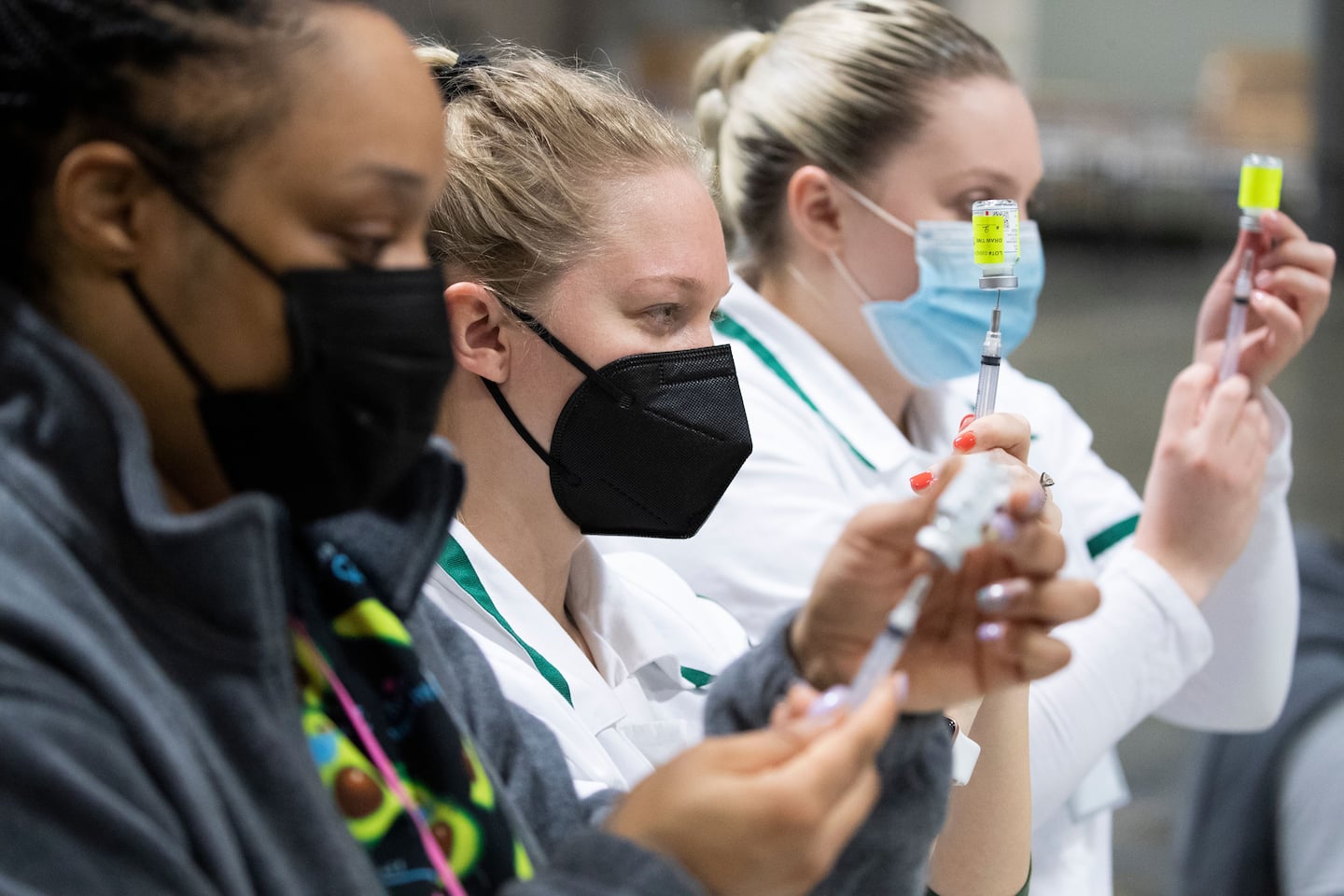The U.S.’s massive vaccine supply could become a diplomatic headache for Biden

The problem for Biden will stem from the massive U.S. vaccine production capacity. By late March, Moderna and Pfizer were already shipping 23 million doses a week of their vaccines across the country, a number that has surely risen since. Johnson & Johnson has since added millions more doses per week to the total. It wouldn’t be shocking to learn that the combined weekly production from these three sources will hit 40 million doses per week by the end of April.
Right now that supply is fueling the U.S. vaccination program, which is still increasing the number of shots delivered each day. The United States vaccinated more than 4 million people on Saturday and has averaged about 3 million per day for the past week. But what happens to the vaccine supply once Americans no longer need it?
This is where Biden’s headaches start. He could allow the manufacturers to sell their products on the open market, as many are already doing. Pfizer, for example, has been selling some of its production to Israel, which was willing to pay top dollar to get the vaccine first. Many manufacturers might already have contractually committed its post-U.S. production to other countries based on their willingness to pay. No one should expect Biden to disrupt those contracts.
But the contracts could easily disrupt Biden’s global diplomacy. Rebuilding relations with traditional allies in Western Europe is one of Biden’s top foreign policy goals. The European Union’s vaccination program is lagging well behind that of the United States and Britain. This has forced countries such as France and Italy to impose another national lockdown as cases rise. Germany is also reimposing restrictions but faces the added problem of a national election in the fall. The ruling Christian Democrats have seen their poll numbers plunge in the past month as restless Germans tire of the seemingly endless lockdowns and restrictions. Shipping U.S. excess production to European allies could be a political masterstroke — if private contracts don’t get in the way and Biden is willing to spend U.S. taxpayer dollars to get the valuable doses.
Should he do this, however, other U.S. allies or countries with which the administration also seeks to build greater ties could cry foul. Australia has been closed to nearly all international travel since the pandemic hit, has experienced several state and local lockdowns, and is one of the developed world’s least vaccinated countries. It is locked in a row with the European Union over its purported attempts to keep doses of the AstraZeneca vaccine in Europe rather than ship them as contracted to Australia. The United States would look like a savior if it picked up the slack later this year, but there’s only so much vaccine to go around.
Developing nations would also want to be in line for any U.S. vaccine gifts. India is facing a big uptick in infections and is already being accused of blocking exports from its vaccine manufacturers to provide for its own people. The United States desperately wants better ties with the giant nation to counter China’s influence, but with 1.4 billion people, India could take all of the United States’ post-summer production for months and still be short of its goals. Brazil, Mexico and Canada would also want their shares of U.S. largesse. And what about the needs of the poorest countries that might not be part of the United States’ alliances or strategic plans? Making everyone happy would tax any nation’s diplomatic abilities.
That’s why the administration should plan now for the inevitable global donnybrook. It should establish contracts with U.S.-based firms for continued U.S. government purchases for doses not already contractually committed that it would then distribute according to a pre-set plan. Rich countries could pay the United States directly for their doses, while poorer ones could be charged on a sliding scale based on the country’s ability to pay. No country would be 100 percent satisfied, but all would benefit in some way. The alternative is a series of ad hoc decisions based on private and public pressure or a hands-off policy to distributing U.S. spare capacity. Neither of those options would help the United States’ global standing.
The United States has prided itself on helping nations in need, whether through one-off provisions of disaster relief or comprehensive efforts such as the post-World War II Marshall Plan that rebuilt Western Europe. Biden must think carefully, but with the right strategy, the United States can help rescue the world again.
Read more:






